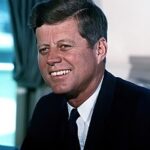The Decision Behind Vietnam War Escalation
President John F. Kennedy inherited a small advisory mission in South Vietnam in 1961. The Eisenhower administration had limited U.S. involvement to 600 military advisors. Kennedy dramatically expanded this commitment through his Vietnam War escalation policy. By 1963, over 16,000 American military personnel served in Vietnam. ⚠️ This decision fundamentally changed America’s role from passive observer to active participant in the conflict.
Military Strategy and Implementation
Kennedy authorized combat missions and covert operations against North Vietnam. The Pentagon created the Military Assistance Command Vietnam (MACV) in February 1962. American advisors began accompanying South Vietnamese forces into combat zones. Special Forces units conducted secret operations along the Ho Chi Minh Trail. 📊 Military aid increased from $28 million to over $400 million annually during Kennedy’s presidency.
Political Justification
Kennedy justified Vietnam War escalation through Cold War containment theory. His administration viewed South Vietnam as crucial to preventing communist expansion. The domino theory suggested that losing Vietnam would trigger regional communist takeovers. Kennedy believed limited military involvement could stabilize the region without full-scale war. 💰 Economic interests in Southeast Asia also influenced this controversial decision.
Impact:
Immediate Military Consequences
Kennedy’s Vietnam War escalation created irreversible military momentum toward full-scale conflict. American casualties began mounting as advisors engaged in combat operations. The South Vietnamese government became increasingly dependent on U.S. military support. 🔥 By 1963, American forces conducted regular combat missions despite official “advisory” status. This escalation made withdrawal politically and strategically difficult for future administrations.
Long-term Political Ramifications
The decision established precedent for massive military intervention without congressional declaration of war. Johnson inherited Kennedy’s commitment and expanded it dramatically through the Gulf of Tonkin Resolution. American involvement eventually peaked at over 500,000 troops by 1968. 📉 Public trust in government declined as the conflict dragged on for over a decade. The war cost over 58,000 American lives and divided the nation.
International and Domestic Impact
Kennedy’s escalation damaged America’s international reputation and credibility. Allied nations questioned U.S. judgment and commitment to peaceful solutions. The decision sparked massive domestic protests and anti-war movements throughout the 1960s. 🌍 Vietnam became synonymous with American foreign policy failure and military overreach. The conflict fundamentally changed how Americans viewed presidential war powers and military intervention abroad.
